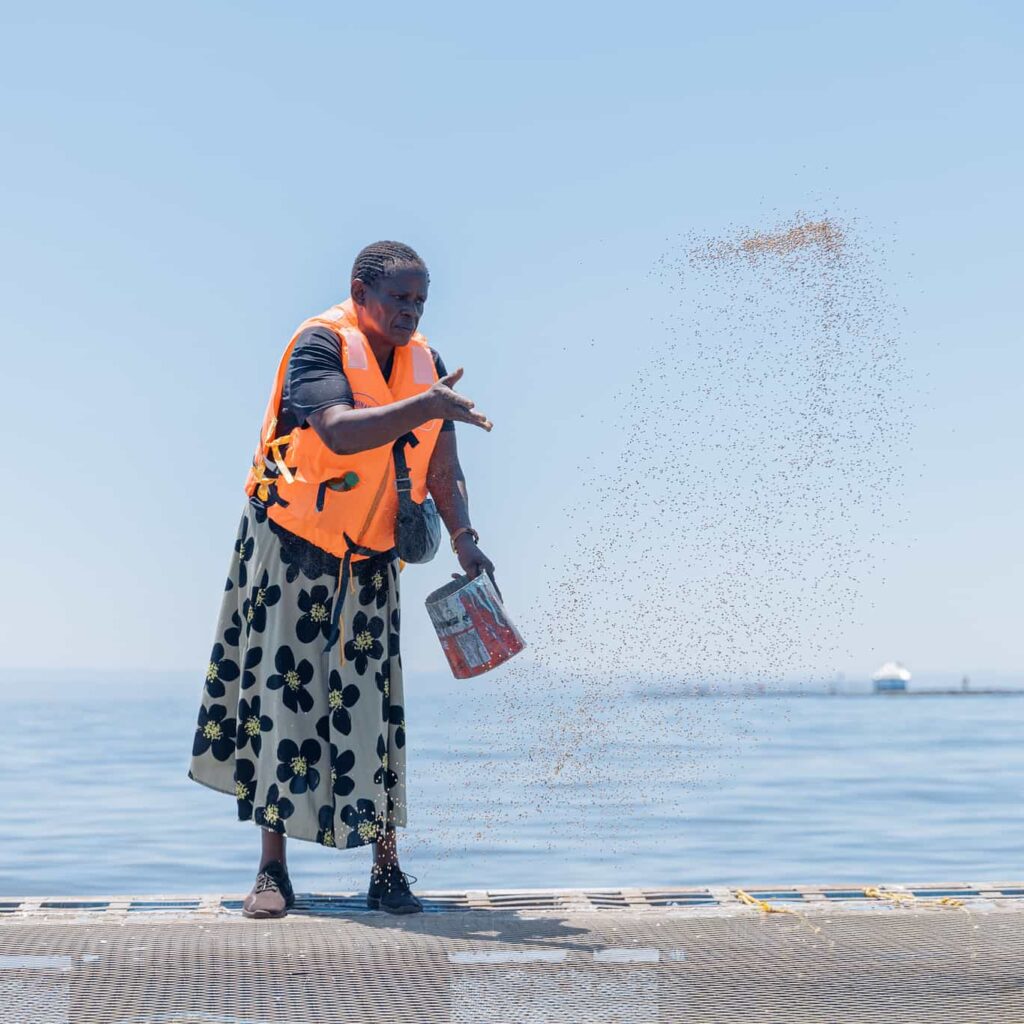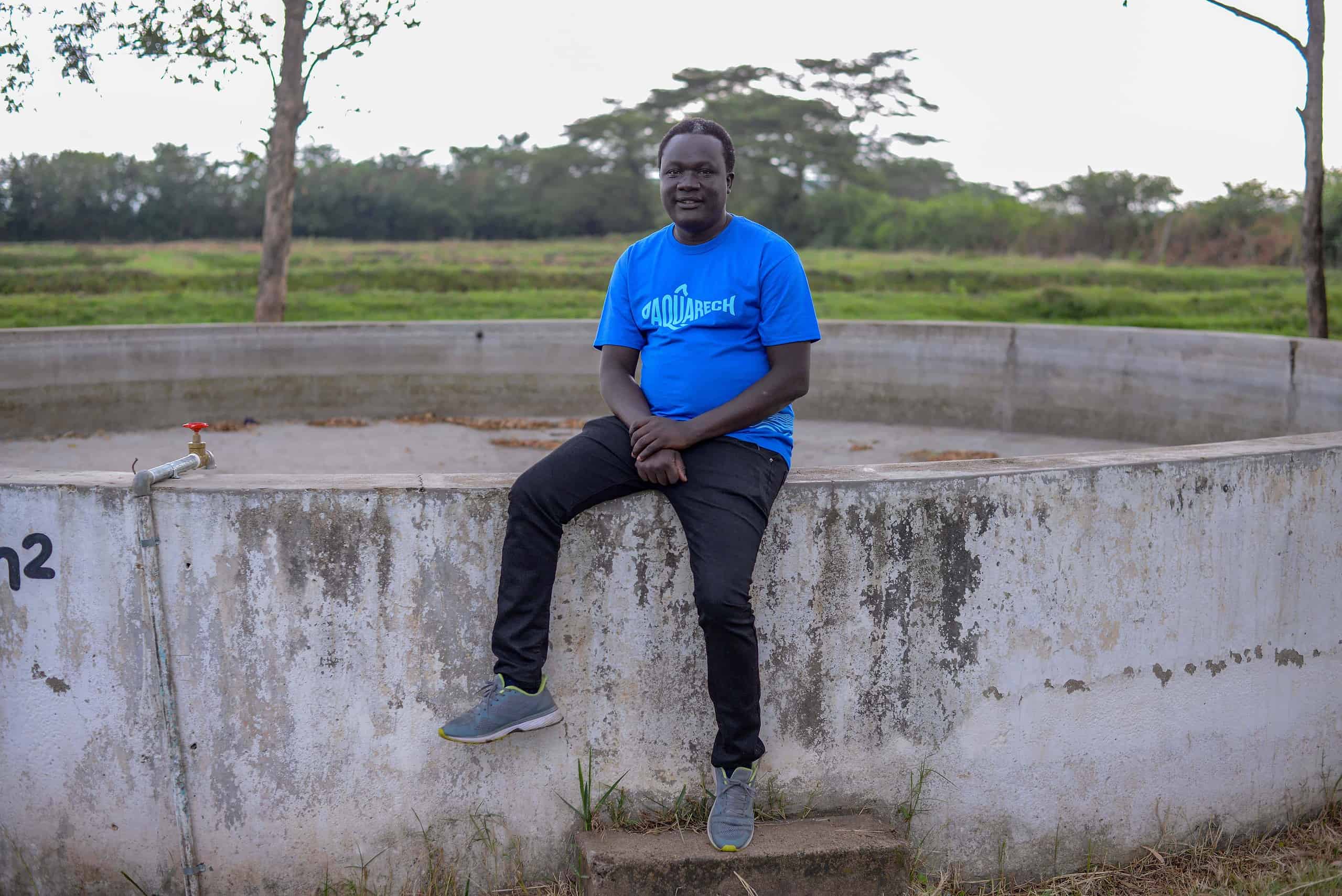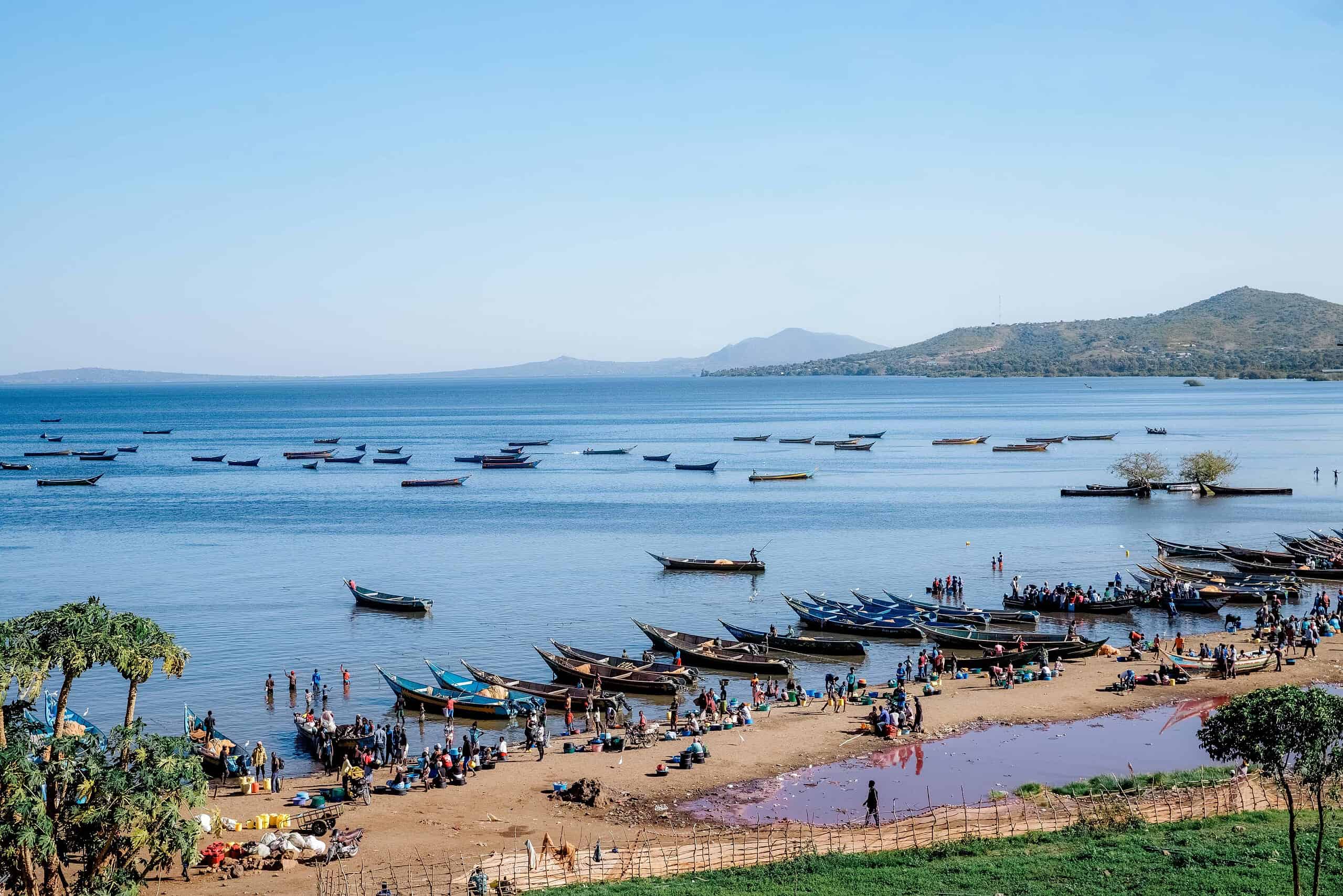Aquarech is digitizing aquaculture on Lake Victoria

- Blog
- Agriculture
- East Africa
Dave Okech remembers the rich life around Lake Victoria. Born and raised on its shores, he witnessed its flourishing biodiversity and the generations who thrived on its seemingly unlimited supply of fresh fish. But by the mid-90s, overfishing, invasive species, and pollution had cast a shadow. “When my community around Victoria was harvesting fish, life was great,” Okech says via Zoom from the lake’s edge. “But when it was empty with fish, it led to serious poverty and terrible life around the lake.”
Aquaculture – the practice of raising aquatic organisms such as fish and shellfish in controlled environments, like ponds or cages – promised a brighter future. In the mid-2000s, fish cages dotted the coast and thousands found new livelihoods. Yet, by 2020, many cages stood empty, victims of high costs, inadequate fish feed, and theft. Okech and his team set out to change that via their company AquaRech, a new Acumen investee.
Lake Life Revitalized
Fueled by memories of the lake’s abundance, Okech launched AquaRech in 2019 (“rech” meaning “fish” in his native Luo). The company supports small-scale fish farmers by providing top-quality feed and a ready marketplace – mostly everything a farmer needs to run a successful business. Their mobile app, the first in Kenyan fish farming, facilitates all transactions and enables AquaRech to earn a small margin on each sale that occurs on their platform.

It also goes beyond commerce. AquaRech offers practical tools like remote water temperature monitoring, optimized feeding schedules, and educational resources on sustainable practices. These features contribute to shorter production cycles, from 13 months to 8, leading to increased income and climate resilience for farmers.
“My quality of life has improved because my fish have doubled in size [due to] AquaRech’s quality feeds, so I sell them at a profit,” says one 37-year-old female farmer. “And the profits I receive help me buy food for my family.”
“As a group we have been able to add more cages and increase our income by 50%,” says another farmer. “We are able to sell our fish, and they’re growing so well because of the feeds we are giving them.”
A recent 60 Decibels study of 208 fish farmers found that 90% reported improved operations after working with AquaRech, for reasons including increased quality in size and weight of fish, increased income, increased quantity sold, and reduced production cycles.
According to Okech, AquaRech’s “Buy Now Pay Later” financing is the key to income generation. “Access to credit produces that increased income, because then the farmer doesn’t fail to feed the fish, and the fish grows to the required weight and body mass in eight months, and the farmer gets their income. Without credit, then the fish goes through 13 months of production cycle, it loses weight, the farmer loses income, and the farmer is more exposed to climate risks.”

Bluer Pastures
In building the physical, financial, and digital infrastructure for fish farming on Lake Victoria, companies like AquaRech are contributing to more resilient communities in the face of climate change. The work is timely and critical for a country such as Kenya where nearly half the population lives under $3.20 per day. Any climate disaster can be catastrophic. Between 2008 and 2022, over 1.4 million Kenyans were internally displaced by floods alone. Forecasts predict even more displacement, with up to 38.5 million climate migrants expected in the Lake Victoria Basin countries by 2050. Some localities around the lake could become “climate in-migration hotspots” as early as 2030.
Aligned with its Forcibly Displaced People (FDP) lens investment initiative and agriculture strategy – Trellis – Acumen invested in the company in November 2023. “AquaRech’s transformative solutions empower farmers to transition from peasant farming to commercially viable pond or cage fish farming, while their precision feeding technology fosters farmers’ resilience to climate change,” says Jedidah Ndubi, Acumen’s senior investment associate. “The bundled services not only bolster economic integration but also prevent further displacement. Dave Okech and his co-founder James Odede, both Acumen East Africa Fellows, epitomize Acumen’s dedication to investing in leaders who boldly confront poverty and injustice.”
Scaling Fish Farming
In the coming years, AquaRech’s focus is twofold: empowering 5,000 smallholders through comprehensive training programs and selling over 20,000 metric tons of high-quality fish feeds. By 2027, it plans to expand its reach by establishing fish outlets across the country, aiming to sell 16,000 metric tons of fish annually. Okech recognizes that the challenges facing Lake Victoria are not isolated but indicative of a wider issue. “I’ve come to realize it’s not only Lake Victoria. It’s African lakes,” he says. AquaRech’s work must continue to grow, adapt, and inspire a sustainable solution large enough to match the scale of the problem.
This is Acumen’s first investment under its Forcibly Displaced People (FDP) Lens Investing program in East Africa. The program aims to mobilize capital into social enterprises inclusive of FDP and their host populations to increase economic opportunities for displacement-affected communities. It is supported by the Conrad N. Hilton Foundation and the Swiss Agency for Development and Cooperation.